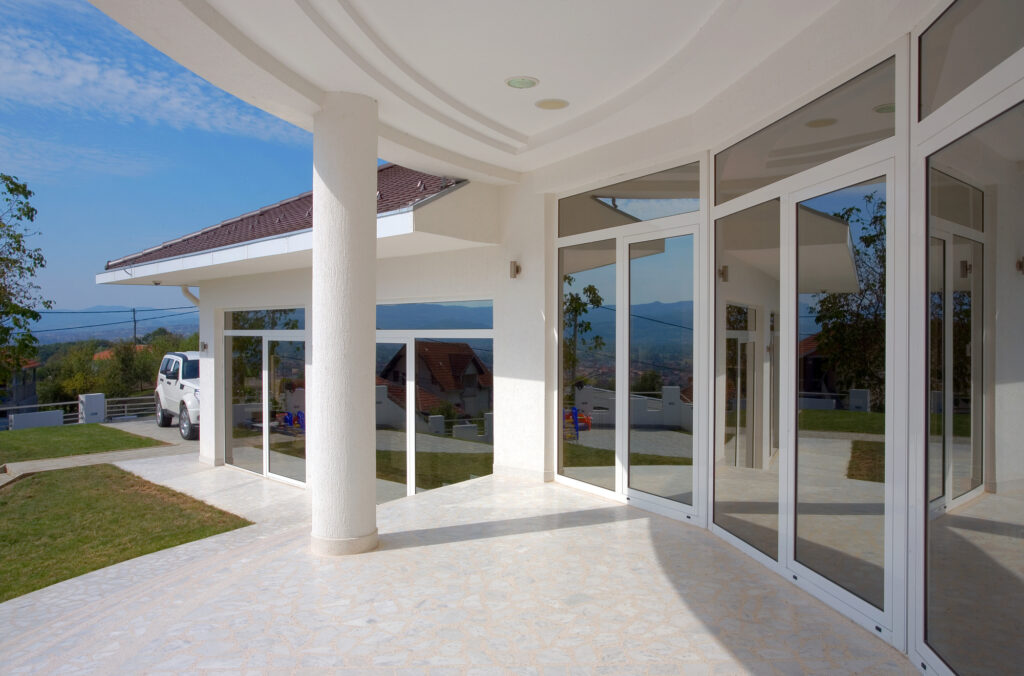-
Charlotte, Raleigh, Greensboro, Winston-Salem, Greenville, SCCharlotte, Raleigh, Greensboro, Winston-Salem, Greenville, SC
(704) 454-8266
- (704) 454-8266

4 Benefits of Home Window Tinting for the Environment
Did you know that the average annual electric bill in the United States is $2,390? That’s more than Charlotte, NC, where the average is only $1,848.
Still, that $1,800+ for electricity alone is a lot, and it’ll likely increase this 2023. For instance, some consumers can expect their typical bill to rise by 6.6% this January 2023.
Fortunately, home window tinting is an eco-friendly way to counter such bill hikes.
Below, we’ll explain how high-quality tint for home windows can help make your abode greener, so read on.
1. Helps Minimize Heat Gains and Losses
Heat gain and heat loss through windows account for 25% to 30% of a home’s heating and cooling energy use.
Heat gain, also called solar gain, refers to heat from the sun that enters windows. This heat then gets passed on to the room, making it hotter.
Heat loss refers to conditioned air (e.g., indoor air warmed by a furnace) that can exit a home via its windows.
One of the primary benefits of home window tint films is blocking some of the sun’s heat that enters windows. That helps reduce heat gains that cause an air conditioner to work harder and use more energy.
Then, in the winter, window tints help prevent heat loss by keeping heated indoor air from exiting. As a result, your home stays warmer longer, so your heating system doesn’t have to work harder.
Thus, window tinting for homes can help prevent energy waste caused by heat gains and losses.
2. Helps Homes Reduce Their Carbon Footprint
A carbon footprint is the sum of anthropogenic greenhouse gases human activities generate. Anthropogenic (human-made) GHGs are the leading cause of climate change and global warming.
The primary GHG emitted by energy-using activities is carbon dioxide (CO2). Therefore, the more energy your household consumes, the greater its carbon footprint.
That’s why carbon footprint reduction can help fight climate change and global warming.
Since home tinting helps cut your energy use, then it can also help reduce your carbon footprint.
3. Decreased Reliance on Fossil Fuels
Energy-using activities emit the most GHGs because of their energy source: fossil fuels.
Natural gas, the primary fossil fuel in NC, accounted for 36% of the state’s electricity source in 2021. Coal, another fossil fuel, accounted for 16%. That’s on top of the natural gas used by 25% of homes for heating.
So, the less energy used and wasted at home, the less you can rely on fossil fuels. Window tinting can help you achieve that goal thanks to its energy-saving effects.
4. Can Help Furniture Last Longer
The sun’s UV rays are some leading causes of fading damage in fabrics, upholstery, carpets, and wood. They also cause these items to dry, become brittle, and develop cracks and chips.
Solar window tints help combat such effects because they block up to 99% of the sun’s UV rays. That allows them to protect floors and furnishings and expand their lifespan.
As a result, you can keep your carpets and floors for longer instead of throwing them away. This is eco-friendly, as the fewer waste materials you produce, the less goes to landfills. Landfills, in turn, generate GHGs, including CO2 and methane.
Home Window Tinting Can Make Homes Greener
From less energy waste to lower carbon footprints, home window tinting can do all that and more. That’s why window tints are excellent for homes that want to become more eco-friendly. To top it all off, quality tints installed by pros can last for up to 20 years.
So, consider making your home greener with window tints as early as now.
Tint USA’s team of professional window tint installers can help. Call us now for your free estimate!
